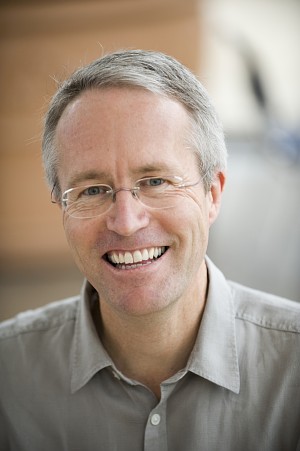Professor Seth Grant honoured by election to the Fellowship of the Royal Society of Edinburgh

Professor Seth Grant is one of 45 new Fellows elected to the Royal Society of Edinburgh (RSE). The 2011 Fellows include leaders in the sciences, arts, humanities, the professions, industry and commerce. Professor Grant is recognised for his research, which focuses on the molecular basis of behaviour and brain disease.
The Royal Society of Edinburgh is an independent charity, which provides educational public benefit activities throughout Scotland and includes 1,500 International Fellows, chosen for their expertise within their fields.
The new Fellows were elected after a rigorous four-stage selection process culminating in a ballot of the entire Fellowship.
“To be elected to this important academic society is a great honour. I am thrilled to be recognised by an organisation that values and promotes the role of research in society and look forward to embracing the new responsibility that is inherent in this Fellowship.
“This honour is also for all those people who I have worked with over the years – their commitment and creativity has been a real driver in all the studies and discoveries I have been involved in.”
Professor Seth Grant FRSE, senior scientist at the Wellcome Trust Sanger Institute
Professor Grant leads research into the genetics of the brain and behaviour. At the Wellcome Trust Sanger Institute, his team uses mice to explore how changes in the genome can affect the architecture of synapses, the junctions between adjacent nerve cells in the brain. Understanding how genetic changes can affect the molecules that comprise the synapse junction is an important step towards understanding brain diseases such as Alzheimer’s, and mental illnesses, such as schizophrenia.
Seth graduated in Science, Medicine and Surgery from The University of Sydney. He has since held roles at the Cold Spring Harbor Laboratory, Columbia University, the New York State Psychiatric Institute and the University of Edinburgh. In 2003, Seth joined the Wellcome Trust Sanger Institute’s research Faculty. Seth also holds an honorary Professorship at the University of Cambridge.
“I am delighted that the Royal Society of Edinburgh has honoured Seth with this Fellowship. He joins an illustrious fellowship that includes many of the most significant researchers from Scotland and the rest of the UK.
“The Royal Society of Edinburgh has august aims to advance learning and useful knowledge and I know Seth will help to realise those aims.”
Professor Mike Stratton Director of the Wellcome Trust Sanger Institute
Royal Society of Edinburgh Fellows are encouraged to contribute to the aims and objectives of the Society, including the provision of expert policy advice to Government and Parliament, outreach education programmes for young people, public engagement events such as conferences and discussion forums, and working on the selection panels for research and enterprise Fellowships.
“I am delighted to be able to announce the new intake of Fellows. Each has achieved excellence in his or her field of work, which has been recognised by their peers through their election to the Royal Society of Edinburgh. I look forward to welcoming them to the Society at the new Fellows induction event in May and will be encouraging them to be active participants in the activities of the Society.”
Lord Wilson of Tillyorn The President of the Royal Society of Edinburgh
More information
Selected websites
The Wellcome Trust Sanger Institute
The Wellcome Trust Sanger Institute, which receives the majority of its funding from the Wellcome Trust, was founded in 1992. The Institute is responsible for the completion of the sequence of approximately one-third of the human genome as well as genomes of model organisms and more than 90 pathogen genomes. In October 2006, new funding was awarded by the Wellcome Trust to exploit the wealth of genome data now available to answer important questions about health and disease.
The Wellcome Trust
The Wellcome Trust is a global charitable foundation dedicated to achieving extraordinary improvements in human and animal health. We support the brightest minds in biomedical research and the medical humanities. Our breadth of support includes public engagement, education and the application of research to improve health. We are independent of both political and commercial interests.


